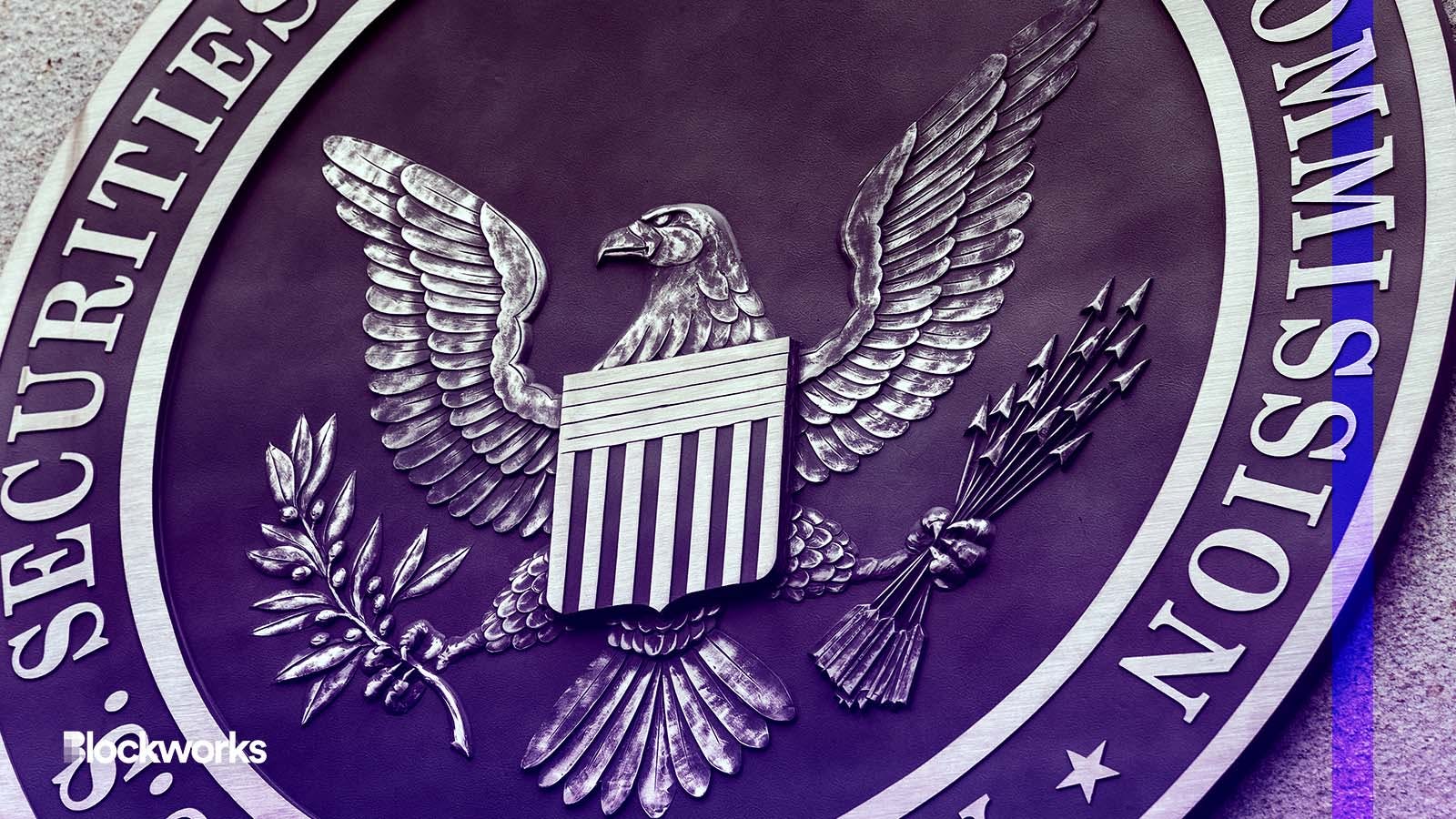Former SEC Chair Jay Clayton takes aim at regulation by enforcement
Clayton appeared to slam government agencies, not naming the SEC, for going forward with cases they think they’re going to lose

AevanStock/Shutterstock modified by Blockworks
Jay Clayton, who served as SEC chair from May 2017 to December 2020, went on CNBC’s Squawk Box for a general discussion Monday.
And Clayton, not the hosts, was the one who pivoted the interview from Wagner’s rebellion in Russia to bring up the regulatory environment in the US. He planted a flag of vehement disagreement with the way the US government is choosing to bring about regulatory change. That is, through court actions he says government agencies “think they’re going to lose.”
“What you’re hearing from the leaders of the regulatory organizations is if we’re not losing cases, if we’re not being pushed back on by the courts, we’re not doing enough,” Clayton said.
He continued, “That is a fundamental shift in how we, as Americans, view the role of the government. I don’t want to be in a place where I know the government is going to bring cases they think they’re going to lose. Imagine you’re the person who is the subject of that case.”
Cameron Winklevoss, co-founder and president of Gemini, tweeted out the clip of Clayton and added his own take, tying it directly to the SEC under current Chair Gary Gensler.
Clayton didn’t explicitly mention the SEC or Gensler in his comments.
In crypto, the most high-profile lawsuits the US government has pursued have been against Binance and Coinbase, the SEC accusing both companies of selling unregistered securities.
Clayton didn’t comment on those specific cases, but his messaging on the state of crypto regulation has been clear.
In a May 24 appearance on Squawk Box, before the SEC went after the two largest crypto exchanges, Clayton said, “Crypto has not been handled well by the industry, or frankly by the regulators on a global basis.”
In the same conversation, he even made the point that blockchain technology could be a good way to trace money, thereby unraveling crimes.
“People use $100 bills for nefarious [activities]. Are we going to shift from $100 bills to programmable money, where it’s much easier to detect illicit activity?” he inquired at the time.
That’s a far cry from the attitude Gensler took on digital assets immediately after his agency unveiled its enforcement actions.
On June 6, the day the SEC brought down the hammer on Coinbase, Gensler was adamant that crypto assets don’t have a place in the global economy.
“We don’t need more digital currency. We already have digital currency. It’s called the US dollar. It’s called the euro. It’s called the yen. They’re all digital right now. We already have digital investments,” Gensler said.
Get the news in your inbox. Explore Blockworks newsletters:
- The Breakdown: Decoding crypto and the markets. Daily.
- 0xResearch: Alpha in your inbox. Think like an analyst.






